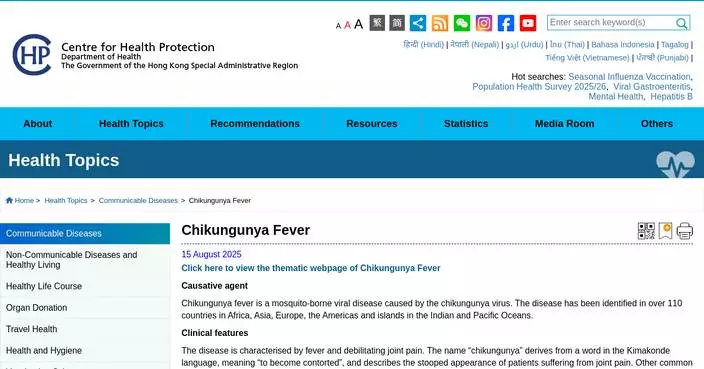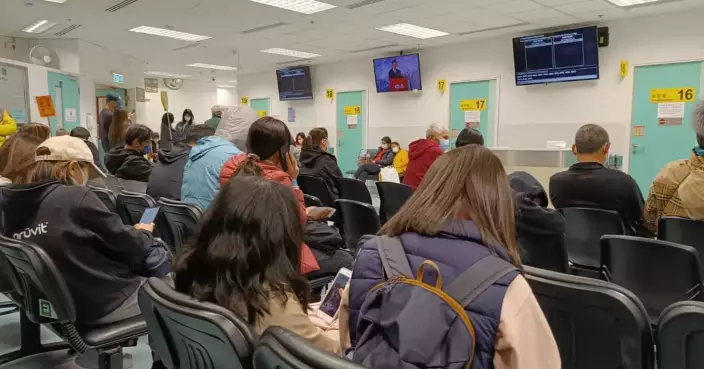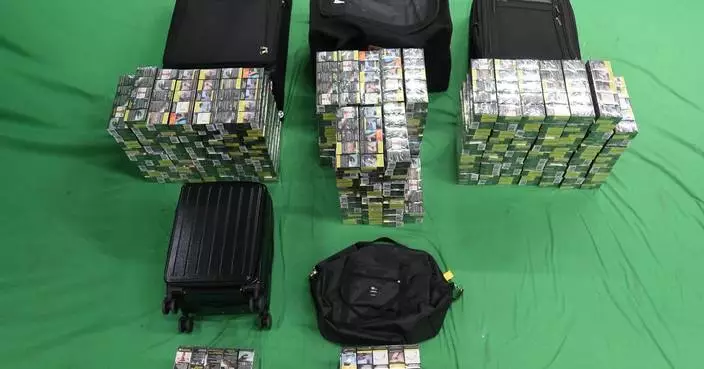DH steps up enforcement action against illegal use of pharmacy logo and title for Labour Day Golden Week of Mainland
As the Labour Day Golden Week of the Mainland approaches, the Department of Health (DH) today (April 29) announced that inspections in tourist areas have been stepped up to crack down on the illegal use of pharmacy logo, in order to safeguard public health and enhance tourists' confidence in shopping in Hong Kong.
The DH conducts unannounced inspections of Authorized Sellers of Poisons (ASPs), commonly known as pharmacies, and Listed Sellers of Poisons from time to time to monitor their compliance with the law and the relevant codes of practice. In the first quarter of 2025, about 3 200 such inspections were conducted.
From April 2024 to March 2025, nine limited companies, which were not pharmacies, were convicted of displaying a logo on their premises, which resembled the logo in the prescribed form of a pharmacy (see Annex), and were fined amounts ranging from $2,000 to $16,800.
According to the Pharmacy and Poisons Ordinance (Cap. 138) (the Ordinance), only persons authorised by the Pharmacy and Poisons Board of Hong Kong (the Board) as ASPs are allowed to conduct the relevant retail business of selling poisons at premises registered by the Board, including the poisons listed in Part 1 and Part 2 of the Poisons List at Schedule 10 of the Pharmacy and Poisons Regulations (Cap. 138A). "Pharmacy" or "Dispensary" is a restricted title for a shop that has been granted a valid licence of ASP.
As far as "Listed Sellers of Poisons" are concerned, retail outlets can conduct the retail business of selling poisons listed in Part 2 of the Poisons List and can only sell common drugs, such as cold and flu medicines, and do not have a duty pharmacist in the shop. Such vendors cannot use pharmacy logo and title.
Displaying a logo in the prescribed form of a pharmacy or a logo which resembles the logo in the prescribed form at a premises other than the registered premises of a pharmacy, or using the Chinese term "藥房" or the terms such as "pharmacy", "dispensary" or "drugstore" in connection with any business engaged in the retail sale of poisons commits an offence. The maximum penalty upon conviction is a fine of $100,000 and two years' imprisonment.
The DH has been collecting intelligence through different channels. If any retailer is suspected of illegally displaying a pharmacy logo in the prescribed form or a pharmacy title, the DH will immediately investigate and conduct a joint operation with relevant law enforcement departments when necessary.
To help the public identify registered pharmacies, the DH has formulated a label for identification of ASPs. The labels have been sent to each pharmacy for display at a conspicuous place in the pharmacy. Consumers can obtain information of the registered pharmacy by scanning the QR code on the label displayed in the pharmacy.
Members of the public and tourists can also download the eHealth app from the website (app.ehealth.gov.hk) and use the "Licence Scanner" on its homepage to scan the QR code displayed at the pharmacy. For registered pharmacies, the message "This is a QR Code issued for licensed pharmacy" will be shown, alongside with details of that particular registered pharmacy. Members of the public can also visit thewebsiteof the Drug Office of the DH for names and addresses of all licensees including ASPs.
In addition, to help Mainland visitors distinguish pharmacies in Hong Kong, the DH also detailed points to note when buying medicines from pharmacies in Hong Kong on its official WeChat account (www.chp.gov.hk/en/static/108354.html).
For more information on the safety of buying and safe use of medicines, please visit the website of the DH's Drug Office (www.drugoffice.gov.hk/eps/do/en/consumer/consumer_safety_advisories/index.html).










